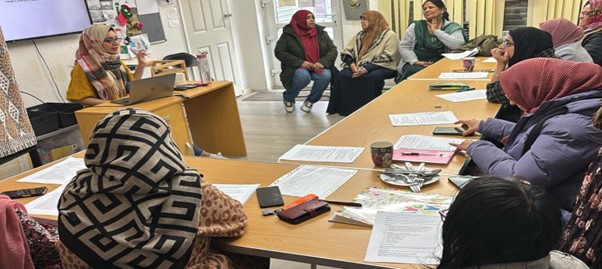
In alignment with the UK government's vision to achieve net zero carbon emissions by 2050, a project titled "Achieving Net Zero by Empowering Ethnic Minority Women" has commenced in Manchester. Spearheaded by the University of Salford and funded by Friends of Energy House 2.0 Impact Fund, collaborating with Better We Charity organization, this initiative aims to empower ethnic minority women to become champions of sustainability and resilience. By empowering participants to become agents of change within their communities, the project seeks to contribute meaningfully to the overarching goal of achieving net zero emissions and creating a more sustainable future for all.
At its core, the project seeks to educate and raise awareness among ethnic minority women about climate change and sustainability. Through interactive workshops, participants are equipped with the knowledge and tools to understand the causes and implications of climate change, the importance of achieving net zero, and practical strategies for leading sustainable lifestyles. The workshops cover a wide range of topics. Participants explore the complexities of greenhouse gas emissions, energy generation, deforestation, agriculture, industrial processes, transportation, plastic usage, waste management, and lifestyle choices. They explore the far-reaching implications of climate change, including hotter temperatures, extreme weather events, economic consequences, increased drought, rising ocean levels, ecosystem disruption, food scarcity, health risks, and the spike in deadly diseases. The workshops also emphasise the role of ethnic minority women as agents of change in combating climate change and fostering resilience within their communities. By recognizing their contributions and potential, participants are empowered to take proactive steps towards mitigating climate change and embracing sustainable practices in their daily lives.
Feedback from participants has been overwhelmingly positive, with many expressing gratitude for the valuable insights gained and the opportunity to learn about sustainability in a culturally sensitive manner. Participants anticipate the continuation of the workshops, recognizing the potential for personal and community-wide benefits, including reduced energy bills, improved health outcomes, and a positive impact on the environment. The project team led by Dr. Ashraful Alam mentioned that they have a plan to conduct this workshop around the whole UK and build a sustainable community. He believes that with strong community engagement and a commitment to education and action, we are confident in our collective ability to drive positive change and build a more sustainable world for generations to come.

